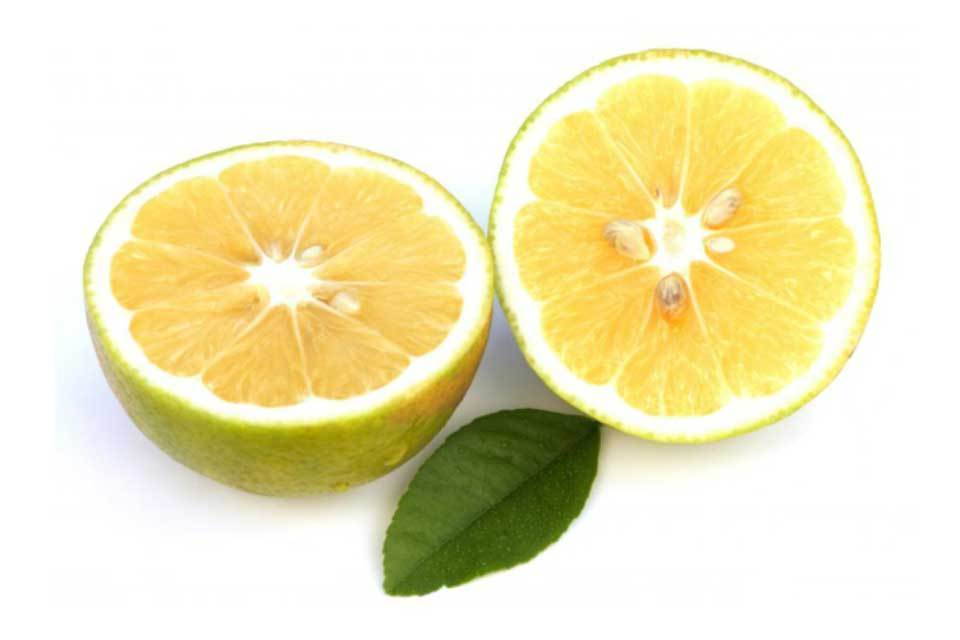Your Cart is Empty
CITRUS BERGAMOT POLYPHENOL SCIENTIFIC STUDIES
Citrus bergamot polyphenols help normal regulation of metabolic processes, and normal lipid and cholesterol levels
Dr. Elzbieta Janda, Et Al
Background: BPF (bergamot polyphenolic fraction) was been obtained from peeled-off fruits by industrial pressing and squeezing. The main polyphenol components of bergamot polyphenolic fraction BPF are flavonoids, and their composition basically mirrors the bergamot juice profile. Certain individual flavonoids present in BPF were studied by Dr. Elzbieta Janda, of the Institute of Research for Food Safety & Health (IRC-FSH), Campus Germaneto, Catanzaro, Italy, and Dr. Ross Walker, of the Sydney Adventist Hospital, Sydney, Australia, who found that these BPF flavonoids are implicated in the regulation of several metabolic enzymes, expressed in the liver, blood and endothelial cells.
Citrus bergamot polyphenols, in particular, may exert numerous regulatory effects on cellular and organism homeostasis, including the regulation of normal fat, cholesterol and carbohydrate metabolism levels and activity. Given the fact that pharmacological effects of nutraceutical preparations based on bergamot flavonoids appear to be comparable to current gold-standard approaches, BPF has the potential to become a “one pill” natural approach to normal regulation of metabolic processes and normal healthy lipid and cholesterol levels.
To read the full study, Google “Elzbieta Janda, PharmaNutrition 4S 2016”.
The Use of Bergamot-derived Polyphenol fraction for optimal cardiometabolic regulation
Dr. Ross Walker, ET AL
Background: Cholesterol levels and blood glucose levels are important markers and risk factor indicators for various cardiovascular and heart health concerns. Experimental and epidemiological evidence suggests that dietary polyphenols, such as flavonoids, may help regulate these risk factors to support maintenance of normal homeostasis. This has been exploited in the case of bergamot juice flavonoids and proved to work in clinical practice by Dr. Ross Walker, Consultant Cardiologist, Sydney Adventist Hospital, Sydney, Australia and others.
Dr. Vincenzo Mollace and co-workers addressed the efficacy of Bergamot Polyphenol Fraction (BPF), in experimental and clinical settings. These authors showed that BPF is effective in regulating multiple metabolic and cardiovascular markers within normal levels and that natural polyphenols show antioxidant properties, that may lead to anti-aging and optimal immune responses as well as other beneficial effects for human health.
To read the full study, Google: “Ross Walker, The Use of Bergamot-derived Polyphenolic Fraction, Cardiac Health And Polyphenols, Polyphenols in Human Health 2014”
Use of a novel and natural antioxidant compound in the regulation of statin tolerance
Drs. S. Muscoli, D. Della Rocca, et al
Background: A 6 month study of the use of concentrated citrus bergamot juice from which an isolated polyphenol fraction (BPF) evaluated the impact of Bergamot Polyphenol Fraction on regulation of total cholesterol levels, levels of both LDL and HDL cholesterol, triglyceride levels, and glucose levels.
The study, conducted by Drs. S. Muscoli and D. Della Rocca, from the University of Rome, Department of Cardiology, found “remarkable” regulation of plasma triglyceride levels as well as glucose levels, and the authors concluded that Begamot Polyphenol Fraction was a “natural antioxidant compound” that could help regulate cholesterol levels for individuals who could not well-tolerate statins, and that Bergamot Polyphenol Fraction could be a safe strategy in the management and regulation of glycemic levels.
To read the full study, Google: “S. Muscoli, Use of a novel and natural antioxidant compound”.
BERGAMOT POLYPHENOLS HELP REGULATE NORMAL LIPID VALUES
Dr. MICAELA GLIOZZI, et al
Background: Statins are the most commonly prescribed drugs to reduce cardiometabolic risk, yet some patients experience statin-induced unpleasant side effects. A study was conducted by Dr. Micaela Gliozzi and Dr. Saverio Muscoli (Department of Medicine, Chair of Cardiology, University of Rome Tor Vergata, Rome, Italy) to look at the use of natural bergamot-derived polyphenols in individuals undergoing statin treatment to regulate target lipid values.
It was found that the addition of BPF to statins significantly enhanced regulation of normal serum lipid profiles compared to statins alone. This effect suggests a multi-action enhanced potential for BPF in patients on statin therapy.
To read the full study, Google: “Micaela Gliozzi, Bergamot Polyphenolic Fraction, International Journal of Cardiology 2013”.
The Effect of Bergamot-Derived Polyphenolic Fraction on Regulating LDL Particles and Non Alcoholic Fatty Liver
Drs. Micaela Gliozzi and Cristina Carresi, et al
Background: In a double-blind, placebo-controlled clinical study on 107 individuals at the San Raffaele Scientific Institute for Research, Hospitalization and Health Care (San Raffaele IRCCS, Rome), Drs. Micaela Gliozzi and Cristina Carresi, et al., examined the effect of Bergamot extract containing Bergamot Polyphenolic Fraction on biomarkers of LDL cholesterol levels, and cardiovascular risk factors.
The study confirmed that Bergamot Polyphenol Fraction has a positive effect on regulating small LDL particle levels and non-alcoholic fatty level biomarkers, with the potential for Bergamot Polyphenol Fraction (BPF) to be of significant value in regulating cardiovascular and cardiometabolic risk.
To read the full study, Google: “SciRes. http://www.scirp.org/journal/abc http://dx.doi.org/10.4236/abc.2014.42017”
Bergamot Polyphenols For Optimal Serum Lipids
Dr. Micaela Gliozzi, et al
Background: Cardiovascular conditions are closely associated with obesity as well as type 2 diabetes. Recent studies highlight a relationship between dietary factors and cardiovascular health, but the characteristics of an optimal diet have yet to be better clarified. Increasing experimental and epidemiological evidence suggests that dietary polyphenols, in particular flavonoids, such as Bergamot Polyphenol Fraction, may play an important role in regulating normal broad anti-oxidant activity, and has been also shown to modulate metabolic enzymes. Bergamot juice is rich in these flavonoids and exhibit statin-like proprieties. Recently, the potential of bergamot derivatives has also been investigated in human studies.
Bergamot polyphenolic fraction (BPF) epidemiological studies have demonstrated that bergamot polyphenolic fraction (BPF) helps regulate optimal serum lipemic profile and normal healthy blood pressure in individuals with varying metabolic concerns.
To read the full study, Google: “Micaela Gliozzi, Bergamot Polyphenols, J Metabolic Syndrome 2014”.
Lipid Regulation with bergamot polyphenols
Dr. Vincenzo Mollace, ET AL
Background: Bergamot juice produces lipemic-regulating activity, though the mechanism remains unclear. In this study, Dr. Vincenzo Mollace of the Department of Pharmacobiological Sciences, University Magna Graecia, Catanzaro, Italy, and Dr. Saverio Muscoli, of the Department of Cardiology, Tor Vergata University, Rome, Italy, investigated the effect of bergamot extract – Bergamot Polyphenol Fraction (BPF) in 237 patients with cholesterol concerns.
The study findings indicate that Bergamot Polyphenol Fraction, given orally for 30 days regulates both total and LDL cholesterol levels, triglyceride levels and blood glucose. On the basis of our data, BPF oral supplements contribute to regulating normal plasma cholesterol and lipids in a substantive range of potency. Thus, BPF offers a safe alternative and the possibility to regulate blood glucose within normal levels and ranges.
To read the full study, Google: “Vincenzo Mollace, Fitoterapia 82, 2010”.
Bergamot Polyphenolic Fraction supplementation improves metabolic balance & maximal oxygen uptake in athletes
Dr. Rocco Mollace, et al
Background: Aerobic capacity and endothelial function represent major determinants of exercise performance in athletes being improved by physical training. This improvement is the result of adaptive changes in skeletal muscle, mostly due to their ability to use oxygen to generate energy for muscle work.
A recent study by Dr. Rocco Mollace and others from the School of Cardiology, University of Rome “Tor Vergata”, Italy, studied the effects of a 4-week Bergamot Polyphenolic Fraction supplementation on serum nitric oxide (NO), other markers of endothelial function, and maximal oxygen uptake of athletes. The findings suggest that an increase in NO release in response to BPF supplementation may play a central role in cardiovascular adaptive mechanisms and enhanced exercise performance in athletes.
To read the full study, Google: “Rocco Mollace, Bergamot Polyphenolic Fraction supplementation, Journal of Sports Medicine and Therapy”.
Polyphenol supplement improves sports vision and reaction time
Dr. Neil WOLKODOFF, ET AL
Background: Limited research has assessed the value of polyphenol supplements in neurological function and sports reaction measures. A highly concentrated extract of citrus bergamot polyphenols was tested because of extensive publications demonstrating benefits in oxidative stress and regulation of normal lipid and cholesterol levels, and therefore might impact visual components.
The study subjects consumed BergaMet Sport, a high concentration polyphenol compound, and five (5) controls consumed a placebo. Weight, body composition, visually directed balance, sports vision reaction time, and a seven component sports vision battery were measured at time 0 and 60 days.
The subjects who received the BergaMet Sport saw statistically significant levels in all sports vision and balance measures compared to the placebo group.
In this investigational pilot study, consumption of a high concentration polyphenol from Bergamot produced significant improvements in regulating optimal normal neurological function related explicitly to visual components, balance and reaction time in this older age group in a relatively short time.
To read the full study, Google: “Neil Wolkodoff can a polyphenol supplement improve sports vision and reaction time? a pilot investigational study: 3605 board #293”.
The Effects of a Unique Bergamot Supplement on Fitness
Dr. Neil E Wolkodoff, ET AL
Background: Menopause is natural phenomenon in women that typically occurs in the early 50s. It is associated with additional health concerns for women that affect general wellbeing, fitness and quality of life, as well as complicating the aging process. Many menopausal women exercise yet note that both physical and psychological results lag behind typical results before menopause.
A study by Dr. Neil E Wolkodoff, Medical Program Director, Colorado Center for Health & Sport Science, Denver, CO looked at the impact of a Bergamot Polyphenol nutritional supplement with already exercising women, and its effect on both physiological and psychological variables. The bergamot supplement produced significantly better results in both areas compared to a placebo group in exercise-matched women.
To read the full study, Google: “Neil E Wolkodoff, The Effects of a Unique Bergamot Supplement on Fitness Factors and Mood in Menopausal Women, 2020”.
THE EFFECT OF BERGAMOT POLYPHENOLIC FRACTION FOR MEN
Dr. vincenzo mollace, et al
Background: Erectile dysfunction (ED) is a common condition, and a seminal study –The Massachusetts Male Aging Study – is often cited by experts in discussions of prevalence. This study found that around 52 percent of men experience some form of ED, which is also highly correlated with various cardiovascular concerns.
A study conducted by Dr. Vincenzo Mollace and others, of the Institute of Research for Food Safety & Health in Catanzaro, Italy, looked at the impact of bergamot polyphenolic fraction (BPF 47%), a natural antioxidant known to regulate normal serum lipids and glucose. The effect of BPF alone or in combination with Tribulus terrestris and Epimedium extract in supporting endothelial function and reactive vasodilatation has been explored after 120 days of use, and showed significant impact in regulating normal healthy erectile function in men by supporting normal endothelial function and penile arteriolar blood flow.
To read the full study, Google: “Vincenzo Mollace, Bergamot Polyphenolic Fraction, Pharma Nutrition”.

NOT ALL BERGAMOT PRODUCTS ARE EQUAL!
BergaMet is the only company whose bergamot extract is approved by the prestigious Accademia del Bergamotto in Calabria, Italy.
- BergaMet Products are the only bergamot-based products that faithfully follow the proper dosage and concentrations of Bergamot extract used and recommended in all the recent clinical studies.
- BergaMet supplements are made with a patented process that compresses concentrated polyphenol powder, including over 47% flavonoids, into Bergamot Polyphenol Fraction (BPF) tablets. BPF includes the same flavonoids as Bergamot juice, but at more concentrated levels. Bergamot Polyphenolic Fraction is 200 times more concentrated in BPF tablets.
The Calabrian region of Italy yields the most potent citrus bergamot fruit in the world, which enables BergaMet to produce a BPF (bergamot polyphenolic fraction) of 47 percent or greater - the most concentrated extract available anywhere.
Competing citrus bergamot products contain only 38 percent BPF or less (BergaMet products include a minimum of 40 percent and up to 47 percent BPF).
Bergamot is naturally sourced, organic, and grown with no pesticides whatsoever.
BergaMet is the only bergamot product formulated based on the most up-to-date research by highly regarded medical professionals who oversee thousands of patients currently taking bergamot supplements.



